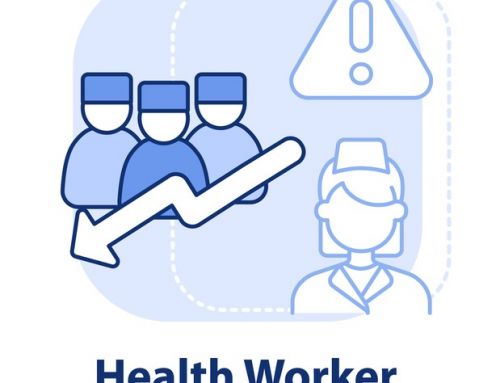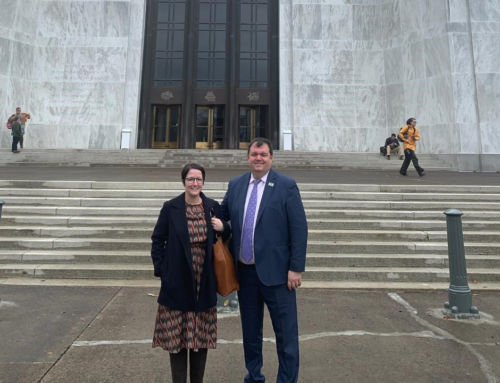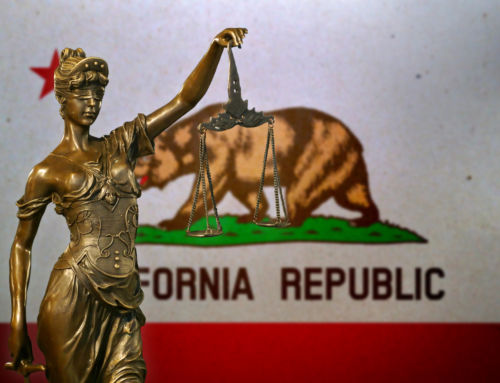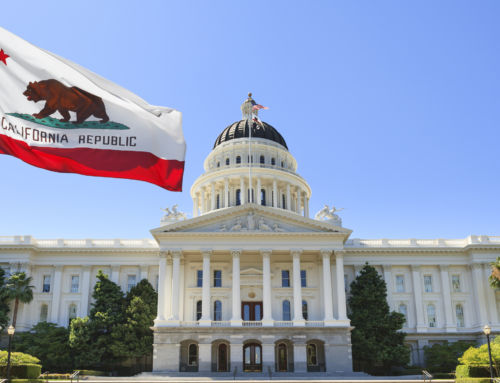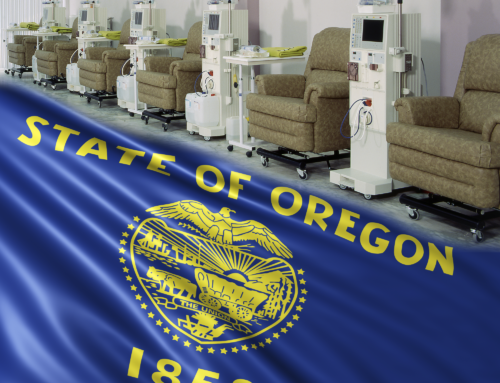Andy Slavitt
Acting Administrator
Centers for Medicare & Medicaid Services
Department of Health and Human Services
200 Independence Avenue, SW
Washington, DC 20201
RE: CMS-6074-NC: “Inappropriate Steering of Individuals Eligible for or Receiving Medicare and Medicaid Benefits to Individual Market Plans”
Dear Acting Administrator Slavitt:
On behalf of the dialysis patients we represent, the American Kidney Fund (AKF), Dialysis Patient Citizens (DPC), and the National Kidney Foundation (NKF) appreciate the opportunity to provide comments on the Request for Information entitled “Inappropriate Steering of Individuals Eligible for or Receiving Medicare and Medicaid Benefits to Individual Market Plans” (RFI). More specifically, we are writing to ask you to protect the rights of individuals living with kidney failure to retain private insurance once they require dialysis treatments.
We agree that the practice of steering any patient toward one type of health plan versus another is inappropriate. Such practices should be prohibited not only at the provider level, but also when health plan issuers undertake such activities. The role of the federal government is to protect individuals’ rights to select the health plan that best meets their needs. No provider or issuer should be permitted to take that right away from any individual, including individuals who have kidney failure and require dialysis treatments to live. Therefore, as you review the information submitted under the RFI, we ask that you protect individuals – especially patients with kidney disease – above all others, including private insurance plan issuers.
Individuals living with kidney failure, also known as End Stage Renal Disease (ESRD), are in the unique position of being eligible for Medicare three months after they are diagnosed with the disease. The Federal government, however, has made it clear that individuals living with ESRD have the right to retain their private health insurance, despite being eligible for Medicare. While most issuers comply with the Federal law, others have designed or are designing plans that make it difficult, or in some instances impossible, for these individuals to retain private insurance. We remain deeply troubled that given the unique health care needs of these individuals, some health plan issuers, especially those offering coverage through the Marketplaces, are implementing policies that steer these individuals into Medicare and/or Medicaid, eliminating their right to choose.
One of the most egregious practices in which issuers have engaged is refusing to allow dialysis patients to accept assistance from 501(c)(3) charities to pay coinsurance obligations. Despite the outcry from some of the issuers of Exchange plans, the dialysis patients receiving such assistance represent a tiny fraction – only 0.05 percent – of the more than 12.7 million Americans currently enrolled in health plans. While it is true that dialysis patients may incur higher costs than healthier patients, these costs were included in the actuarial valuation of Exchange plans and the Agency has developed risk adjusters to account for these costs (and is proposing to update and improve these adjusters in the most recent Notice of Benefit and Policy Parameters proposed rule).
By undertaking these actions, these issuers are actively discriminating against dialysis patients, contrary to the guarantee issue requirements. We have asked the Office for Civil Rights to investigate these practices. In violating the requirements of Section 1557, these issuers are conducting discriminatory policies in a way that unfairly target poorer African American patients. According to the NKF statistics, the number of Blacks and African Americans living with kidney failure is three times higher rate than that of Caucasians.1 Thus, we ask that CMS exercise its authority and protect these individuals by prohibiting issuers from implementing policies that discriminate against dialysis patients and require these issuers to accept assistance from charities that meet the guardrails set forth in this letter on behalf of dialysis patients who qualify for such assistance.
I. The Congress and CMS Have Historically Protected the Rights of Dialysis Patients To Select the Health Plan of Their Choice.
Dialysis patients hold a unique position within our health care system. When the Congress created the Medicare ESRD benefit, it made a commitment to maintain a safety net to ensure that all Americans who required dialysis would be able to access this life-sustaining treatment through the Medicare. However, it did not require all dialysis patients to rely upon Medicare for coverage. Instead, it required – and continues to do so to this day – all group health plans to allow enrollees to maintain their insurance even three months after a diagnosis of ESRD, making Medicare coverage secondary.2
The Administration has maintained this commitment to allow dialysis patients to select the health plan that best meets their needs. Regulations issued by the Internal Revenue Service (IRS) affirm that dialysis patients may be eligible for tax credits and subsidies as long as these individuals do not affirmative enroll in Medicare. A similar policy applies to Medicaid beneficiaries, as most recently noted in CMS’s guidance to brokers. CMS has also indicated that dialysis patients have a right to select and maintain non-Medicare coverage unless they are actively enroll in Medicare.
For Medicaid, some States have received waivers that allow eligible patients to enroll in Exchange plans as an alternative to Medicaid. Other States have expanded Medicaid to include individuals who may be 150 – 200 percent above the poverty level. These patients may also have the choice to enroll in an Exchange plan rather than Medicaid.
II. Private Insurance May Be the Best Option for Some Patients.
The affirmation of the right of individuals with dialysis to select the coverage of their choice is critically important. ESRD patients have much to consider when selecting insurance and should have the same right as every other American to select their coverage that best meets their needs. While Medicare may work for many patients, it is not always the right option. In a survey of its members, DPC found that 77 percent of patients rate their private health insurance as the “best health insurance plan possible.”
Dialysis patients may prefer private coverage for many reasons. For example, private plans may offer better coverage and lower coinsurance obligations. Private plans may also offer more care coordination and chronic care management options, which is especially important to individual with dialysis who are under 65 years old because they are prohibited by statute from enrolling in Medicare Advantage (MA) plans.
Additionally, in approximately half of the States, dialysis patients who are under 65 years old and qualify for Medicare due to their ESRD diagnosis are prohibited from obtaining Medigap supplemental coverage. Even if a State allows dialysis patients to purchase Medigap plans, some States only require plans to offer the most basic Medigap Plan A, which fails to cover the services they may need. Medigap Plan A does not cover Part A and B deductibles and does not have an out-of-pocket max. Of the 6,900 patients in the Exchange plans who are currently receiving charitable assistance through the AKF, about 1,600 (25 percent) of them live in states where Medigap under age 65 is not required. ESRD patients without Medigap have trouble filling in the gaps in Medicare coverage to treat their disease. While there are efforts to expand Medigap coverage for all dialysis patients, the problem remains.
Similarly, Medicaid may not always provide the coverage that a dialysis patient seeks. Many States do not require coverage for prosthetics, fistula placement, podiatry, physical therapy, and optometry. Often, drug coverage may also not be as comprehensive as private plan options. As with Medicare, not all dialysis patients are required to enroll in Medicaid and chose not to do so because of the coverage differences.
Other dialysis patients rely on private insurance because of their families. Neither Medicare nor Medicaid covers family members. If a dialysis patient is forced to accept coverage from Medicare or Medicaid, his/her family will be required to have different plans. This requires the family to duplicate its coinsurance obligations (two sets of premiums, two different sets of deductibles, etc). Thus, dialysis patients with families may seek to maintain their private coverage to multiple plans and to avoid higher out-of-pocket expenses.
Deciding to remain in private insurance rather than to enroll in Medicare or Medicaid does not automatically mean that a patient will be harmed. During the MSP period, dialysis patients retain the right to remain in their private coverage without risking a penalty to maintaining this coverage. Some patients may also qualify for Medicare through their status of being disabled and would also not be subject to an enrollment penalty if they maintained private coverage for a period after their diagnosis of ESRD. Additionally, some dialysis patients may actually be more likely to receive a transplant if they remain in private insurance.3
In the end, it is the right of every dialysis patient to have the opportunity to examine all of their options and select the plan – whether private or governmental – that best meets their needs. It is wrong for any provider or issuer to steer patients toward one option over another. CMS should protect the patient’s right to chose, not the issuers who are steering patients away from their products.
III. Patients Need Accurate and Complete Information To Exercise Their Rights To Select a Health Plan that Is Best for Them.
To make informed choices, dialysis patients need accurate information and someone to help guide them through the complexities of evaluating health insurance plans. To this end, dialysis patients have been very active in shaping the educational and social service requirements of the Medicare ESRD Conditions of Coverage. Current law requires dialysis facilities to provide dialysis patients – even before they are enrolled in Medicare – with access to social workers or other members of the dialysis facility’s interdisciplinary team to assess all aspects of their ability to cope with the disease, including insurance coverage.4
The average individuals who are diagnosed with ESRD enter a dialysis facility relying upon their previous health insurance – unless they were already Medicare or Medicaid beneficiaries – for at least the first three months of their dialysis treatments. During the initial months, these individuals receive a comprehensive patient assessment and plan of care. The assessment includes reviewing their insurance options, many times with a licensed social worker. The social worker reviews their insurance and other potential options, as well as any financial assistance for which they might qualify as required by CMS.5 This information should also include information about different dialysis modalities, transplant options, and the impact of coverage in accessing various aspects of care.
The information provided at this time is critically important to dialysis patients and must be complete and accurate, presenting the benefits and potential detriments of the various insurance options available to each patient. Empowered with this information, each dialysis patient can make the choice of which plan is best for him/her. If anything, patients would like to see more education. They do not want these services to be confused with steering and taken away.
IV. CMS Should Protect Patient Choice By Preventing Issuers from Steering Dialysis Patients Away from Private Coverage.
In light of our multiple conversations with CMS during the last three years, we are disappointed that the RFI accuses providers of inappropriate steering while ignoring the specific examples of issuers steering patients that we have shared with the Agency and others in the Administration. We ask that CMS examine the practices of issuers, some of which we summarize below, and stop the issuers using these tactics from discriminating against dialysis patients.
Several issuers refuse to recognize premium payments made on behalf of dialysis patients by the AKF. They ignore the OIG’s Advisory Opinion that clearly states that there is a firewall between contributors to the AKF and the patients who receive the assistance. Instead, issuers have accused providers and indirectly the AKF of using this charitable assistance to steer patients to private plans. These accusations reflect a complete misunderstanding of the structure and processes of the AKF. Simply put, there is no connection between a dialysis facility’s contribution and the decision to support a patient through the AKF’s assistance program.
These policies also appear to single out dialysis patients. Issuers continue to accept third party payer assistance for HIV/AIDS and cancer patients, while rejecting such assistance for dialysis patients, the vast majority of whom are African American.
As the history of the AKF clearly indicates, it has been providing assistance to dialysis patients to maintain group health plans and/or Medigap policies for nearly 45 years. Nothing of substance in the way patient assistance grants are evaluated and awarded has changed. The only thing that has changed is the fact that dialysis has been designated an essential benefit under the Affordable Care Act (ACA) and issuers in the Exchange are required to provide coverage without regard for the fact that a patient requires dialysis.
We appreciate the difficulties that health plans have experienced during the initial years of the ACA. We also recognize that it may be difficult to distinguish between a legitimate patient-centered charity, like the AKF, and other charities that have been formed to take advantage of the new ACA coverage. To that end, our organizations, along with the broader kidney care community, have recommended that CMS establish clear guardrails that would distinguish such entities. More specifically, we have recommended that to provide premium or other coinsurance assistance, an entity must:
- Provide assistance for at least one full plan or calendar year (and not merely to secure temporary coverage for short-term or one-time procedures or conditions);
- Have procedures that protect patient choice and prohibit any direction that the patient use only certain insurers or providers and provide assistance for a full range of insurance products including but not limited to: Medicare Part B, Medigap, QHP and other commercial, Medicaid, EHGP and COBRA plans;
- Be a bona fide, publicly or privately funded, 501(c)(3) charitable organization run by independent Board of Directors;
- Have uniform procedures that include an application process, independent determination of financial need by the charity’s employees, and geographic diversity;
- Have uniform procedures that sever any nexus between insurer or provider donations to the charity and the beneficiary’s receipt of grant assistance, including procedures prohibiting providers from limiting use of their donations to certain patients other than for financial need, and procedures prohibiting providers or insurers from having any input in the assessment or approval of patient applications;
- Meet the requirement CMS finalized in NBPP (e.g., notice requirements 45 CFR § 156.1250(b)); and
- Comply with other applicable federal, state, and local laws.
We believe that these guardrails, which we have shared in various venues during the past year, address the specific concerns raised by issuers. If CMS feels that these guardrails are not sufficient, we ask the agency to work with our organizations to refine them so as to protect patient access to this critical assistance.
In addition to refusing to accept charitable assistance on behalf of dialysis patients, issuers have begun modifying their plan designs in ways that discriminate against dialysis patients and steer them away from private coverage toward Medicare and/or Medicaid. While our organizations continue to work with State Insurance Commissioners to try to stop these policies, they persist. For example, some plans intentionally mislead individuals with dialysis by writing in their plan descriptions that federal law requires individuals with ESRD to enroll in Medicare four months after having been diagnosed with the disease. Other plans tell individuals with dialysis that if they enroll in Medicare, the plans will pay their Medicare coinsurance amounts on their behalf. Still others seek to incentivize individuals with dialysis to enroll in Medicare directly by stating that effective the first day of the fourth month of dialysis, the plan will pay for renal dialysis services at a designated percentage of the Medicare allowable amount. This places the enrollee requiring dialysis in the position of having to pay the remaining amount that is above the Medicare rate but consistent with the amount negotiated between the plan and the provider.
While we again do not condone providers steering patients toward one plan or another, we urge CMS to also actively police the activities of issuers and stop them from doing the same. Individuals requiring dialysis should be presented with complete and accurate information to make their own informed choices without having to navigate coercive and deceptive policies imposed by anyone.
V. CMS Can Address Issuer Concerns by Implementing Appropriate Risk Mitigation Policies.
The concerns expressed by health plan issuers appear to be grounded more in the inadequacies of the current risk mitigation policies, rather than in providers “steering” dialysis patients into private insurance. Dialysis is an essential health benefit and, as such, these patients are included in the actuarial valuation of the plans, as noted already. Improvements can and should be made to risk pools. While we continue to evaluate the proposed modifications to the risk adjustments related to dialysis patients in the Notice of Benefits and Payment Parameters proposed rule, they appear to move in the right direction. We ask that CMS protect patients and, rather than accept misguided allegations of steering, implement appropriate risk adjusters similar to those used for MA plans. CMS should not endorse affirmatively or tacitly the actions of health plan issuers that discriminate against patients or vilify providers because these issuers do not want to provide coverage to a group that the Congress mandated as part of the essential health benefits.
VI. Conclusion
On behalf of the patients we serve, AKF, DPC, and NKF appreciate the ongoing engagement with us and our members on the problems that dialysis patients continue to experience with issuers in the Exchange plans. However, it is now time to protect patients. We are sincere in our commitment to work with CMS to ensure that legitimate charitable assistance is provided in an appropriate and fair manner. We also ask that CMS stop issuers from rejecting this assistance and implementing other policies that discriminate against dialysis patients by steering them into Medicare or Medicaid. It is time that CMS clarify its policy to protect dialysis patients from such actions.
Sincerely,
LaVarne A. Burton
President and CEO
American Kidney Fund
Hrant Jamgochian, J.D., LL.M.
Executive Director
Dialysis Patient Citizens
Tonya L. Saffer
Senior Health Policy Director
National Kidney Foundation





